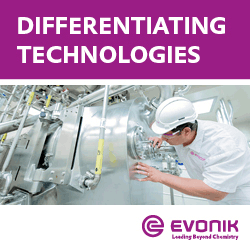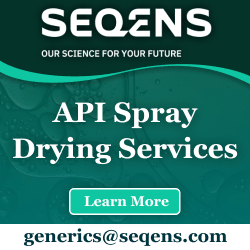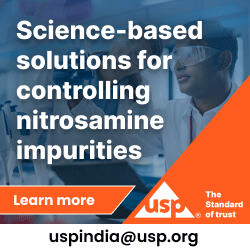Overview of GMP Spray Drying & leading CDMOs offering industrial spray drying, custom spray drying and other particle engineering techniques.
Q1. What is API spray drying?
Spray drying is a pharmaceutical technique that transforms a liquid solution into a dry powder. It is a continuous process where the liquid feedstock is atomized into fine droplets within a cylindrical drying chamber, and is exposed to a stream of hot drying gas. These particles are then separated and collected as a powder product and are sent to the next phase of the pharmaceutical manufacturing process.
Spray drying is a particle engineering method extensively employed to improve the solubility of drugs administered orally, through inhalation, or topically. It is utilized in the production of a wide range of products, including active pharmaceutical ingredients (APIs), enzymes, excipients, bulk agents, powder products, controlled release drug formulations, etc.
Typically spray drying is also employed for highly potent APIs, peptides, controlled substances, and thermally sensitive or thermolabile compounds. It is an effective and reliable method that is utilized in the development of active pharmaceutical ingredients (APIs) for various reasons.
Spray drying leads to enhancements in average particle size, particle size distribution, visual appearance, texture, flow characteristics, compressibility, dispersibility, bulk density, and solubility. Spray drying solutions also include increased bioavailability of poorly soluble APIs in spray-dried dispersions, stabilization of biologicals such as proteins and peptides, enhanced therapeutic effectiveness, safety, tolerability, and patient compliance.
Q2. What are the advantages of using spray drying in API development?
Spray drying is a well proven and scalable technology that can facilitate the development of drug substances and products, spanning from laboratory or bench-scale research to extensive commercial scales. The use of spray drying for APIs’ formulation development offers numerous advantages, making it a widely used technique in the pharmaceutical industry.
In API development, the incorporation of spray drying aligns with the objective of optimizing drug delivery, improving therapeutic effectiveness, solubility, and API bioavailability, and addressing issues related to its physicochemical characteristics. These spray drying solutions make spray drying an important technique in alleviating the challenges associated with formulation success.
Some of the key benefits of spray drying are outlined below:
1. Solubility and Bioavailability Improvement: Spray drying is a particle engineering technology that can enhance the solubility and thereby bioavailability of poorly water-soluble APIs.
2. Uniform Particle Size: Spray drying results in control over the particle size distribution, resulting in uniform and fine particles which is essential for dosage form uniformity and consistent performance.
3. Amorphous Solid Dispersion: Spray drying enables the formation of amorphous solid dispersions, preventing the crystallization of APIs. The amorphous state frequently demonstrates increased solubility compared to the crystalline form.
4. Heat-Sensitive Compound Stabilization: Spray drying operates at lower temperatures in comparison to alternative drying techniques, making it suitable for heat-sensitive APIs.
5. Scalability: The spray drying technology is scalable from small-scale research to extensive commercial production, ensuring uniformity and efficiency throughout the spray drying scale up process.
6. Lowered Risk of Cross-Contamination: The closed-system design of the spray drying technology reduces the potential for cross-contamination between distinct batches, and simplifies cyclone cleaning thereby enhancing the overall quality of the product.
7. Decreased Production Costs: The cost-effectiveness of API spray drying is enhanced by its efficiency, rapidity, and scalability, rendering it a financially viable choice.
8. Improved Stability: Spray drying potentially enhances the physical stability of APIs by mitigating concerns associated with hygroscopicity and preventing the crystallization of the substances.
All these advantages together make spray drying a valuable and widely utilized technology in the API development and manufacturing, addressing various production challenges and contributing to the overall success of drug development projects. These challenges are often overcome by certain companies that offer API spray drying services.
Additionally, various other organizations (CDMOs and CMOs) might also have state-of-the-art cGMP spray drying facilities that provide spray drying solutions along with other pharmaceutical contract manufacturing services. The CDMOs for spray drying are usually equipped with pharmaceutical spray dryers that provide custom spray drying services for APIs and formulations including process development, development of spray dried materials, and spray drying contract manufacturing.
Q3. What are the potential challenges faced by companies when contemplating spray drying and what precautions should be considered for drying substances?
Spray drying is a sophisticated technique for drying solid substances from aqueous or organic solutions, suspensions, and emulsions. In this process, a spray dryer transforms a liquid feed into fine droplets, and the organic solvent or water is evaporated using hot drying gas.
Spray drying technology can pose certain challenges during its operation or while evaluating the process. Therefore pharmaceutical companies outsource their products to spray drying CDMO service providers to avoid difficulties related to their spray drying process.
When considering spray drying for drying and particle engineering technology in pharmaceutical manufacturing, manufacturers should take certain precautions to overcome these challenges and pitfalls. The pharmaceutical contract development and manufacturing service provider should acknowledge the following conditions which include:
-
Product Quality and Uniformity: In the spray drying process, variations in particle size can affect product’s stability and appearance. Optimizing feed rate, particle size and temperature can help in overcoming these challenges. Also implementing quality control measures to ensure consistency.
-
Heat Sensitivity: Heat sensitive APIs may degrade or lose their efficacy due to the high temperatures used in spray drying. Using lower inlet temperatures and conducting stability studies to assess the impact of heat on the APIs can help overcome this challenge.
-
Optimization of Process Parameters: Determining the ideal spray drying parameters such as feed rate, inlet/outlet temperatures, and atomization pressure can be challenging and demands precise control to achieve the desired product characteristics. Conducting thorough process development and utilizing experimental design techniques to find optimal conditions can help manage this challenge.
-
High Energy Consumption: Spray drying is energy-intensive, as it requires significant heat to evaporate the solvent. This can lead to high operational costs and environmental concerns. Implementing energy-efficient technologies and exploring energy recycling options can help overcome this challenge.
-
Solvent Recovery and Recycling: Efficiently recovering and recycling solvents used in the process can be challenging, particularly in large-scale operations. This is crucial for reducing operational costs and minimizing environmental impact. Investing in solvent recovery systems, and regularly monitoring and maintaining recovery equipment can solve this challenge.
-
Equipment Costs and Maintenance: Spray drying equipment can be costly both to acquire and maintain. To avoid downtime and ensure optimal performance, it is important to invest in high-quality, reliable equipment and to schedule regular maintenance and calibration.
-
Scale-up Challenges: Scaling up from laboratory to industrial scale can present challenges, including maintaining product quality and process efficiency. Differences in equipment design and scale can affect the consistency of the spray drying process. Performing scale-up studies and pilot trials. Ensuring consistency in process conditions from lab to production scale.
-
Feed Solution Properties: The properties of the feed solution, such as viscosity and concentration, can impact the spray drying process. Inconsistent feed properties can lead to variations in the final product. Often, this issue can be resolved through dilution, use of a more suitable solvent and adjusting feed solution parameters like viscosity and concentration.
-
Dust and Contamination: Spray drying can generate dust, which may pose contamination risks and affect the final product quality. Effective dust collection and control measures are necessary to maintain a clean environment.
-
Regulatory Compliance: Meeting regulatory requirements for specific industries, such as pharmaceuticals or food, adds complexity to the spray drying process, as companies must ensure that their processes and products comply with stringent standards. Conducting thorough documentation and validation to meet compliance requirements.
The pharmaceutical manufacturers and CDMO for spray drying must consider all these parameters to avoid any challenges related to the success and efficiency of the spray drying process. Various spray drying CDMO service providers offer API contract manufacturing services to their partners. These CDMOs for spray drying provide pharmaceutical contract manufacturing services from their facilities for improving the API and formulation solubility and bioavailability.
Q4. What are the leading CDMOs offering API Spray Drying services?
Many CMOs and CDMOs for spray drying might provide end-to-end API spray drying services. Spray drying of pharmaceutical active ingredients is still a challenging process and requires experienced operators to control the yield and quality. To access this expertise, it's essential to partner with experienced API CDMOs specializing in spray drying contract manufacturing for a variety of drugs, including high-potent APIs (HPAPIs)
Certain API CDMOs (contract development and manufacturing organizations) feature process development and cGMP spray drying facilities that specialize in pharmaceutical spray drying for APIs, the development of pharmaceutical spray dried materials, and contract manufacturing of spray products. Additionally, these API CDMOs are equipped with advanced pharmaceutical spray dryers which address challenges related to the poor water solubility of APIs and thus provide solubility enhancement, increased dissolution rates, and API bioavailability enhancement.
The CDMO for spray drying has gained importance because of increased R&D costs, requirements for special competencies, and end-to-end solubility enhancement technologies they offer. Due to this reason outsourcing API to CDMO for spray drying is gaining prominence. The market for pharmaceutical spray drying contract manufacturing and development is constantly expanding. Several spray drying contract manufacturers are providing comparable pharmaceutical contract manufacturing services.
Some of the top spray drying contract development and manufacturing organizations (CDMOs) with spray drying capabilities are explained below:
Seqens: Seqens offers spray drying of pharmaceutical active ingredients such as highly potent APIs, and nanosuspensions containing APIs for solubility and bioavailability enhancement. Its pharmaceutical spray dryers provide development of pharmaceutical spray dried materials, API contract manufacturing services, and spray drying scale up from pre-clinical grams to commercial scale.
PharmaVize NV: PharmaVize NV is a spray drying service provider offering the development of pharmaceutical spray dried materials. Its cGMP spray drying facility has various spray drying capabilities for active pharmaceutical ingredients and pharmaceutical products for solubility and bioavailability enhancement.
Fuji Chemical: Fuji Chemical is a CDMO for spray drying that provides custom spray drying services for APIs such as highly-potent APIs. It is a pharmaceutical spray drying contract manufacturer that is involved in contract manufacturing of spray products and nanosuspensions, and offers API spray drying services for bioavailability enhancement.
Lubrizol: Lubrizol’s industrial spray drying CDMO services include process development and pharmaceutical contract manufacturing of spray products such as micro and nanosuspensions. It has spray drying facilities and commercial scale spray dryers that offer industrial spray drying and API spray drying services for solubility enhancement.
Micro-Sphere: Micro-Sphere is CDMO for spray drying that offers process development and industrial spray drying services for enhancing the solubility of APIs. It has commercial scale spray dryers and spray drying capabilities that offer custom spray drying services for scaling up the spray drying for APIs.
Olon S.p.A: Olon S.p.A is an API spray drying service provider that offers spray drying services for APIs. It is a spray drying contract manufacturer that has commercial scale spray dryers providing spray drying of pharmaceutical active ingredients and spray drying scale up services for API bioavailability enhancement.
Various pharmaceutical organizations, such as contract development and manufacturing organizations (CDMOs), and contract manufacturing organizations (CMOs), can offer API spray drying services. Spray drying technology is one of the leading processes for enhancing the solubility of APIs and pharmaceutical products.
API spray drying services have become a vital tool in pharmaceutical manufacturing, particularly for enhancing the solubility and bioavailability of poorly water-soluble APIs. The process offers versatility in scaling from clinical trials to full production, with precise control over product characteristics. Given the complexities of spray drying, partnering with experienced CDMOs and CMOs is crucial to ensuring optimal yield, quality, and regulatory compliance.All Suppliers












 Seqens is an integrated global leader in pharmaceutical solutions & specialty ingredients, & custom-made solutions to our customers.
Seqens is an integrated global leader in pharmaceutical solutions & specialty ingredients, & custom-made solutions to our customers.






